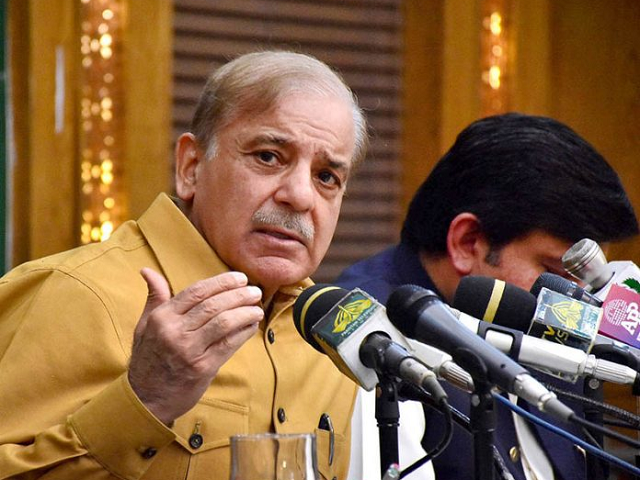
Prime Minister Shehbaz Sharif, while setting clear goals for the government’s economic team, vowed on Wednesday that the government would complete the International Monetary Fund (IMF) programme, as he shunned rumours about economic deterioration.
While declaring that reducing circular debt was a priority of the government, Shehbaz said that along with increasing power generation, the government would also have to deal with circular debt issue and make efforts to increase local production of energy, so that dependence on imported fuel could end gradually.
Earlier, Finance Minister Ishaq Dar’s predecessor, former finance minister Miftah Ismail, had said in an interview with a local TV channel that the risk of default would remain until the resumption of the IMF programme.
Ismail had highlighted that if the IMF programme was not restored, other international financial institutions would not give loans to Pakistan, which would cause the country to default.
Before that, Dar had announced that all matters pertaining to the ninth review of the IMF package were completed and that payments were prepared till June.
In an interview with a private media channel, the finance czar had also said that Pakistan was pursuing financial help from Saudi Arabia, including doubling the current deferred oil payment facility, given by the kingdom, to $2.4 billion per year.
Similarly, State Bank of Pakistan (SBP) Governor Jameel Ahmad had held out the assurances earlier this week that Pakistan would pay all its debts “on time” and that foreign exchange reserves were expected to increase during the second half of the current financial year.
Addressing a high-level meeting regarding the on-going economic situation at the Prime Minister’s House, Shehbaz said that exporters would be fully supported, adding that the incumbent government inherited “a ruined economy” which was being stabilised with hard work.
The meeting was attended by the federal ministers for finance, economic affairs, planning, defense, SBP governor, some top bankers and senior officials. The economic situation, particularly, the ninth review of the IMF was discussed besides various measures to control the current account deficit.
Reiterating his determination to complete the IMF programme, the prime minister directed the authorities concerned to take necessary steps to control the fiscal and current account deficit. He said that he would focus on necessary policy and administrative reforms in this regard.
Shehbaz directed that all possible facilities should be provided to the exporters, including necessary facilities at ports. He also directed the economic team to identify new markets and provide assistance in importing raw materials and machinery as well.
PM noted that currently the volume of IT exports was $2 billion, which could easily be increased to $5 billion by helping and facilitating entrepreneurs and the start-ups. In addition, he said that overseas Pakistanis should be encouraged to send their funds to the homeland through banking channels by providing facilities to them.
While directing for reforms in the energy sector, the prime minister said that “reducing circular debt is a top priority”. Because of the expensive imported fuel the common people are burdened, he said, adding that efforts should be made to give relief to masses in this regard.
The prime minister directed that a campaign should also be started to improve general attitudes towards energy saving, saying that the people should be informed that saving energy was a national need.
During the last four years, the meeting noted, Pakistan’s economy suffered because of poor governance. The previous PML-N government had left GDP growth at 6.1% in 2018 when PTI government came to power.
However, they noted, instead of improving the economic situation, poor governance and economic mismanagement made the economy stagnant.
The meeting further noted that public debt was Rs25 trillion in 2018, which was increased to Rs44.5 trillion by March 2022 – in 42 months of the PTI government. Similarly, other economic indicators also pointed to a very bad economic situation.
Claiming that the incumbent government has stabilised economy, the participants noted that due to the flood situation, the process of economic recovery of Pakistan suffered a blow but the current government did not let the economic difficulties hinder it in helping 33 million Pakistanis.
The prime minister directed all the ministries falling under the federal government to save energy and control expenses by adopting austerity measures.


1732271743-0/diddy-(45)1732271743-0-165x106.webp)

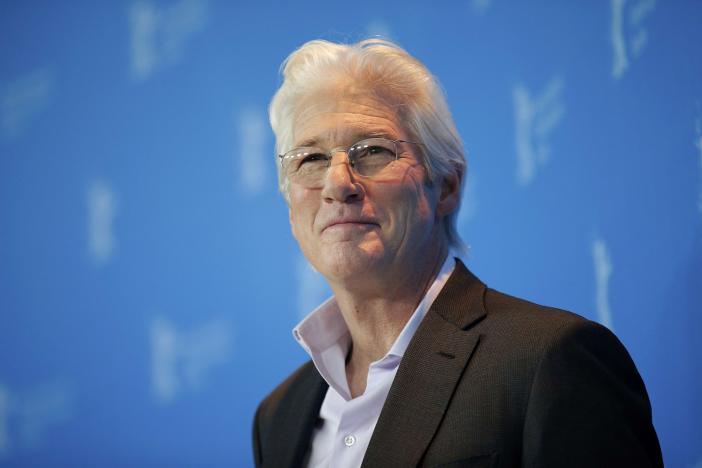

1732270499-0/Express-Tribune-(7)1732270499-0-270x192.webp)
1732267715-0/BeFunk_§_]__-(32)1732267715-0.jpg)

1732263788-0/BeFunk_§_]__-(30)1732263788-0.jpg)
1732268955-0/BeFunk_§_]__-(33)1732268955-0.jpg)

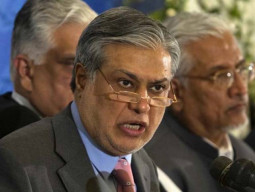
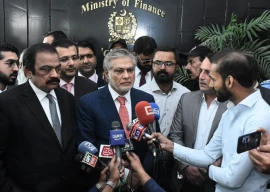
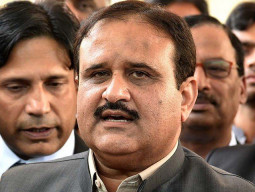







COMMENTS (3)
Comments are moderated and generally will be posted if they are on-topic and not abusive.
For more information, please see our Comments FAQ